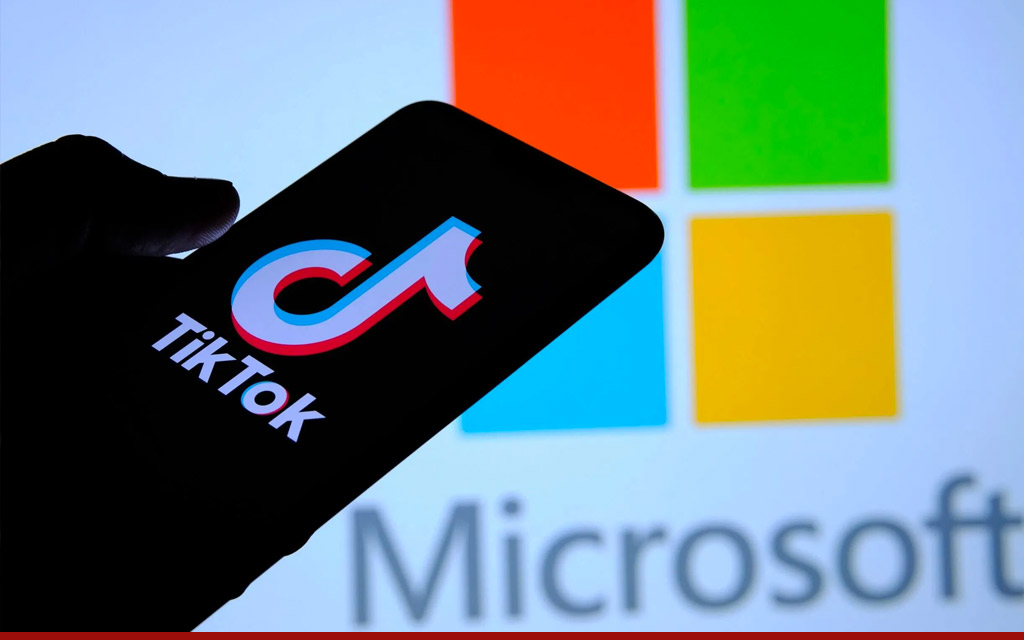Two weeks ago, shortly after moderating a session with a senior TikTok executive at the Techonomy Virtual conference, I speculated here about TikTok’s best way towards a “green card.” I suggested that it had to start flying its American flag right away and separating from ByteDance, its Chinese owner. Since then things have hockey-sticked into a story of international intrigue.
TikTok is a breath of fresh air in social media, a fresh alternative for a new generation of video-first content creators. Through a series of highly unusual circumstances, Microsoft is now in talks to buy TikTok. But unless I’m dead wrong, a Microsoft acquisition won’t end well. I have been rooting for a complete spinoff of TikTok, creating a new American company.
Over the past weeks, TikTok has faced harsh criticism and the threat of an outright shutdown and ban from the Trump Administration. Ostensibly this is because TikTok (which does not serve customers in China) has a Chinese-based parent company, ByteDance. The fear is that ByteDance, and the Chinese government by association, might gain access to U.S. users’ personal data.
But it’s no coincidence that Trump’s TikTok assault begins almost the instant a bunch of TikTok users pranked the President by creating thousands of fake RSVPs to his Tulsa, Oklahoma rally. That seems to have been a significant factor in reducing turnout and making the event into something of a reputational Waterloo for our so-image-conscious President.
Before the prank, it was hard to imagine that the President knew TikTok from a TicTac. But for the President, a man known to hold a grudge, TikTok is now the John Lewis of social media.
TikTok, meanwhile, seems to be trying its darndest to be a good American player. The company recently started offering transparency reports on its data collection methods and insights into its algorithms. It’s now got stronger policies against misinformation and impersonation than Facebook, Instagram or Snap. It doesn’t accept political ads, and it was faster than any other service to remove the synthetic media Nancy Pelosi clip that went viral over the weekend. The company even hired a former Disney executive as its CEO. (How much more American does it get than that?)
Over the past few days, the plot has thickened into a juicy stew. U.S. Treasury Secretary Steve Mnuchin, whose department was investigating TikTok, concluded that the company needed to be closed or sold if it was going to operate in the US. Then Microsoft stepped up as a serious suitor. Then this week, not only did the potential acquisition receive President Trump’s blessing, but he also demanded that America (aka The Treasury Department) would get a commission for arranging the marriage. That is so outside the norm, so almost certainly illegal, that it elicited nearly-unanimous alarm from the pundit class.
The social media community compared the President’s idea of a kickback to Fanucci’s plea to Don Corleone to “wet the beak” in The Godfather II. And it all raised a question. Would Microsoft be more or less principled if it were simply to walk away from this tawdry mess?
Beyond politics, there’s DNA. Microsoft doesn’t seem to me like a particularly simpatico suitor for TikTok. The company has a generally miserable performance record with consumer-facing products. Minecraft, Xbox, Bing – are a few examples of its consumer products that have often seemed to languish. Xbox is the company’s biggest ongoing consumer success, and while it has generally lost market share to Sony’s PlayStation products in recent years, it remains feisty, even as the company has signaled it will steadily shift away from the console model towards cloud-based games. Microsoft is hugely successful in cloud technology. Minecraft had been on a decline but in the last couple years has resurged. But Skype is a sadder story. Since it bought the communications service in 2011, Microsoft has done little to improve it and plenty to confuse it.
Under CEO Satya Nadella’s stewardship, Microsoft masterfully repositioned itself as a serious enterprise company. That’s another reason it’s an odd match for the consumer facing TikTok.
You’ve got to wonder why TikTok, a fun-diversion for dancing teens in pandemic times, is gobbling up so many news cycles? Put simply, TikTok will be increasingly great for American business, no matter who owns it. With 1,000 U.S. employees today and the promise to soon hire 10,000 more, the company is an economic bright spot during tough times. It also has significant ancillary economic effects. In July, ByteDance leased 9 megawatts-worth of data center space in Ashburn, Virginia, one of the largest new leases in that part of the country. TikTok also recently inked a deal with Google to buy more than $800 million in cloud services (snubbing both AWS and Microsoft). Shortly after the deal, Amazon temporarily and mysteriously banned employees using TikTok. For all we know, Microsoft may be as interested in the cloud service portion of TikTok as it is in the product itself.
Most recently, news has broken of a group of parents suing TikTok for stealing their children’s data and sharing it with China. The suit claims forensic evidence exists. That’s another headache Microsoft doesn’t need.
The TikTok headline I’d like to read is one that talks about the formation of a new American company, completely separated from China. It would be good for competition and better positioned for future growth than if Microsoft were its owner.
READ MORE: https://techonomy.com/2020/08/why-microsoft-shouldnt-buy-tiktok/




